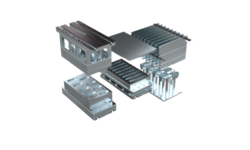What Are Some Tips For Decorating A Home Office?
As remote work becomes more prevalent, many individuals are looking for ways to create a functional and comfortable workspace in their homes. A well-designed home office can increase productivity, creativity, and overall job satisfaction. In this article, we will explore some tips for decorating a home office to create a space that is both stylish and functional.
Consider the location
The first step in creating a home office is to choose the right location. Ideally, your home office should be in a quiet area of your home, away from distractions. It should also have access to natural light and fresh air. Consider a room with a view or one that is close to a window. This will not only provide you with natural light but also offer a chance to take a break and look outside.
Choose a color scheme
Choosing a color scheme is a crucial step in creating a home office. The colors you choose can have a significant impact on your mood and productivity. Neutral colors such as beige, gray, and white are popular choices for home offices. However, adding pops of color through artwork or accessories can help to inject personality and make the space feel more inviting.
Invest in quality furniture
Investing in quality furniture is essential when creating a home office. A comfortable desk and chair are crucial for maintaining good posture and avoiding back pain. Look for furniture that is both functional and stylish. A desk with plenty of storage can help to keep your workspace clutter-free, while a comfortable chair can prevent discomfort and help to maintain good posture.
Incorporate storage solutions
Storage solutions are an essential component of any home office. Without proper storage, your workspace can quickly become cluttered and disorganized. Consider using shelves, bookcases, or cabinets to keep your workspace organized. A filing cabinet can also be useful for keeping important documents organized.
Add lighting
Good lighting is crucial in any workspace. Natural light is the best option, but if that is not possible, invest in good quality artificial lighting. A desk lamp or floor lamp can help to brighten up your workspace and reduce eye strain.
Personalize your space
Personalizing your home office can help to make it feel more inviting and inspire creativity. Adding personal touches such as artwork, plants, or family photos can help to make the space feel like your own.
Add greenery
Adding plants to your home office can help to improve air quality and reduce stress levels. Plants such as spider plants, peace lilies, and snake plants are great options for home offices as they are low maintenance and can thrive in low-light environments.
Keep it clutter-free
A cluttered workspace can be distracting and reduce productivity. Make sure to keep your home office clutter-free by using storage solutions and regularly decluttering your workspace.
Consider ergonomics
Ergonomics is the study of how people interact with their work environment. It is essential to consider ergonomics when setting up a home office to prevent back pain and other work-related injuries. Make sure to choose furniture that is adjustable and promotes good posture.
Stay organized
Staying organized is essential in any workspace. Keep your desk clean and organized by using storage solutions and creating a filing system for important documents. Regularly declutter your workspace to keep it clean and tidy.
Frequently Asked Questions:
What is the best location for a home office?
The best location for a home office is a quiet area of your home, away from distractions. It should also have access to natural light and fresh air.
What color scheme is best for a home office?
Neutral colors such as beige, gray, and white are popular choices for home offices. However, adding pops of color through artwork or accessories can help to inject personality and make the space feel more inviting.
3. What type of furniture should I choose for my home office?
When choosing furniture for your home office, consider investing in quality pieces that are both functional and stylish. A comfortable desk and chair are crucial for maintaining good posture and avoiding back pain. Look for furniture that has plenty of storage options to keep your workspace organized.
How can I incorporate storage solutions in my home office?
There are several ways to incorporate storage solutions in your home office. Shelves, bookcases, or cabinets can help to keep your workspace organized, while a filing cabinet can be useful for keeping important documents in order.
What type of lighting is best for a home office?
Good lighting is crucial in any workspace. Natural light is the best option, but if that is not possible, invest in good quality artificial lighting. A desk lamp or floor lamp can help to brighten up your workspace and reduce eye strain.
How can I personalize my home office?
Personalizing your home office can help to make it feel more inviting and inspire creativity. Adding personal touches such as artwork, plants, or family photos can help to make the space feel like your own.
What are some low-maintenance plants that are suitable for a home office?
Plants such as spider plants, peace lilies, and snake plants are great options for home offices as they are low maintenance and can thrive in low-light environments.
How can I prevent clutter in my home office?
Make sure to keep your home office clutter-free by using storage solutions and regularly decluttering your workspace. Consider implementing a filing system for important documents and making use of shelves or cabinets to keep items organized.
What is ergonomics, and why is it important for a home office?
Ergonomics is the study of how people interact with their work environment. It is essential to consider ergonomics when setting up a home office to prevent back pain and other work-related injuries. Make sure to choose furniture that is adjustable and promotes good posture.
How can I stay organized in my home office?
Staying organized is essential in any workspace. Keep your desk clean and organized by using storage solutions and creating a filing system for important documents. Regularly declutter your workspace to keep it clean and tidy. Consider setting aside time each week to tidy up your workspace and maintain organization.



